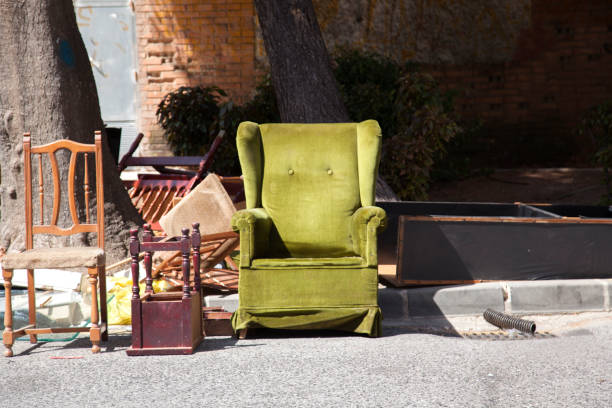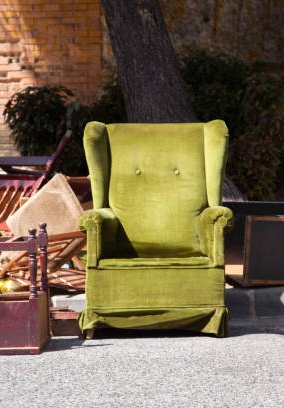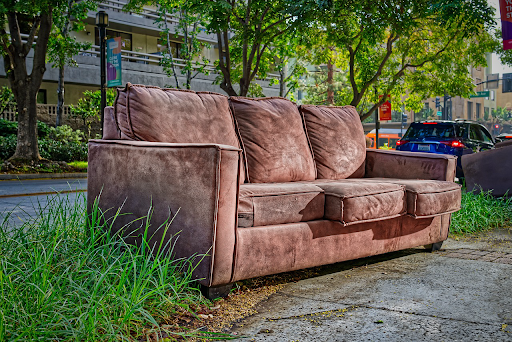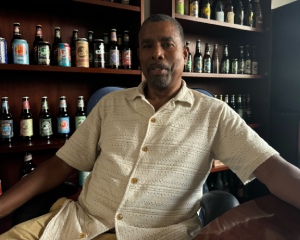

How to Stop Being a Throwaway Culture: A Path Towards Sustainability
By WS/C Staff
Sign up for our monthly newsletter!
N ew York City, renowned for its vibrant culture and endless opportunities, is also notorious for its waste problem. Every day, thousands of tons of trash are discarded, much of it comprising items that remain perfectly usable. The staggering volume of good stuff thrown out in New York City highlights both the excesses of consumerism and the potential for more sustainable practices. From furniture and household items to personal care products, clothing, and electronics, discarded items line the curbs of every block. New York City generates over 14 million tons of trash annually, with a significant portion consisting of items that could still serve a purpose.
Recognizing the value in what we discard and taking proactive steps to reuse, recycle, and donate can have a profound impact on reducing waste and fostering a more environmentally conscious region. The challenge lies not only in changing individual behaviors but also in creating systems that facilitate responsible practices for everyone.
Throwaway Culture and Biodiversity
At the core of the throwaway culture is a fundamental misunderstanding: the belief that natural resources are infinite and easily replaceable. This mindset drives the relentless extraction of raw materials, many of which come from plants. From timber used in disposable products to plant-based oils and fibers in fast fashion, the demand for these resources is growing unsustainably.
The overharvesting of plants for products that are quickly discarded directly impacts plant conservation. Forests are cleared for timber and agriculture, resulting in habitat destruction and loss of plant diversity. Non-timber forest products, such as medicinal plants and resins, are often harvested unsustainably, putting pressure on wild populations. This not only threatens the survival of specific plant species but also disrupts the ecosystems that rely on them.
The throwaway culture also contributes significantly to biodiversity loss. As demand for products increases, so does the need for monoculture plantations, which replace diverse ecosystems with single-species crops. These plantations are often less resilient to pests and diseases, leading to increased use of chemical inputs that further harm the environment. The loss of biodiversity is particularly concerning for plant conservation, as diverse ecosystems provide essential services such as pollination, water purification, and climate regulation. When plant species are lost due to habitat destruction and unsustainable harvesting, these ecosystems become less capable of supporting the myriad forms of life that depend on them, including humans.
Shifting Towards Mindful Consumption
To break free from the throwaway culture, we must first change our mindset towards consumption. This involves becoming more conscious of our purchasing decisions and their long-term impacts. Here are key steps to foster mindful consumption:
Prioritize Quality Over Quantity: Invest in durable, high-quality products that are designed to last. Although these items may have a higher upfront cost, their longevity reduces the need for frequent replacements, ultimately saving money and resources.
Adopt Minimalism: Embrace the idea that less is more. By reducing the number of possessions we accumulate, we can focus on the things that truly matter, leading to a more fulfilling and less cluttered life.
Support Sustainable Brands: Choose to buy from companies that prioritize sustainability, ethical production, and environmental responsibility. Research brands to ensure they align with these values.

Embrace the Circular Economy
The circular economy is a model that emphasizes keeping products and materials in use for as long as possible. Unlike the linear economy, which follows a “take-make-dispose” pattern, the circular economy encourages repair, refurbishment, and recycling. By adopting this approach, we can significantly reduce waste and resource consumption.
Repair Instead of Replace: When an item breaks, consider repairing it rather than discarding it. Repair cafes, online tutorials, and local artisans can help extend the life of your belongings.
Reuse and Repurpose: Before throwing something away, think about how it could be reused or repurposed. Glass jars can become storage containers, old clothes can be transformed into cleaning rags, and furniture can be upcycled for a new life.
Participate in Recycling Programs: Properly recycling materials like paper, glass, and certain plastics ensures they are reintroduced into the production cycle, reducing the demand for virgin resources.
While individual actions are crucial, addressing the throwaway culture on a larger scale requires systemic change. Governments, corporations, and communities must collaborate to create policies and infrastructures that support sustainable practices.
Implement Extended Producer Responsibility (EPR): EPR policies hold manufacturers accountable for the entire lifecycle of their products, including disposal. This incentivizes companies to design products that are easier to repair, recycle, and dispose of responsibly.
Promote Education and Awareness: Public awareness campaigns and educational programs can empower individuals to make informed choices and advocate for sustainability in their communities.
Support Legislation: Advocate for and support laws that ban single-use plastics, incentivize recycling, and promote sustainable production methods.
Cultivating a Culture of Sustainability
To truly move away from a throwaway culture, we must cultivate a culture of sustainability. This involves fostering a sense of responsibility towards the environment and future generations. It also means valuing experiences and relationships over material possessions and recognizing that our choices today shape the world of tomorrow.
Engage in Community Initiatives: Join or support local initiatives that promote sustainability, such as community gardens, repair workshops, and zero-waste movements.
Teach and Inspire Others: Share your knowledge and practices with friends, family, and colleagues. By setting an example, you can inspire others to adopt sustainable habits.
Celebrate Progress: Acknowledge and celebrate small victories in reducing waste and promoting sustainability. Positive reinforcement encourages continued efforts and helps build momentum.
Here’s to New Beginnings
Stopping the throwaway culture requires a collective effort to rethink our relationship with consumption and waste. By adopting mindful consumption practices, embracing the circular economy, advocating for systemic change, and cultivating a culture of sustainability, we can pave the way toward a more sustainable future. The transition may be challenging, but the rewards—healthier ecosystems, more resilient communities, and a better quality of life—are well worth the effort. Plant conservation is not just about saving individual species; it is about preserving the ecosystems that sustain all life on Earth. By addressing the throwaway culture, we can reduce the strain on these ecosystems and ensure that they continue to thrive for generations to come.
Join World Sensorium Conservancy as a paid member.
Plantings
Issue 40 – October 2024
Also in this issue:

Microbial Aromas Might Save Crops from Drought
By Ruth Schmidt

Can Trees Heal You?
By Catlin Chandler

The Chipko Movement: An Indian Tree-Hugging Protest that Revolutionized Environmentalism
By Gayil Nalls

The Art of The Brew: Brewing Tradition and Cultural Memory
By Gayil Nalls

The Allure of Goth Gardens: A Symphony of Darkness and Beauty
By Gayil Nalls

Eat More Plants Recipes:
Spinach Pasta
By John Steele

As Ireland transitions from the rich, smoky scent of peat-burning to a more sustainable future, its olfactory heritage is evolving. What will become the next iconic aromatic symbol of Ireland?
Click to watch the documentary trailer.

